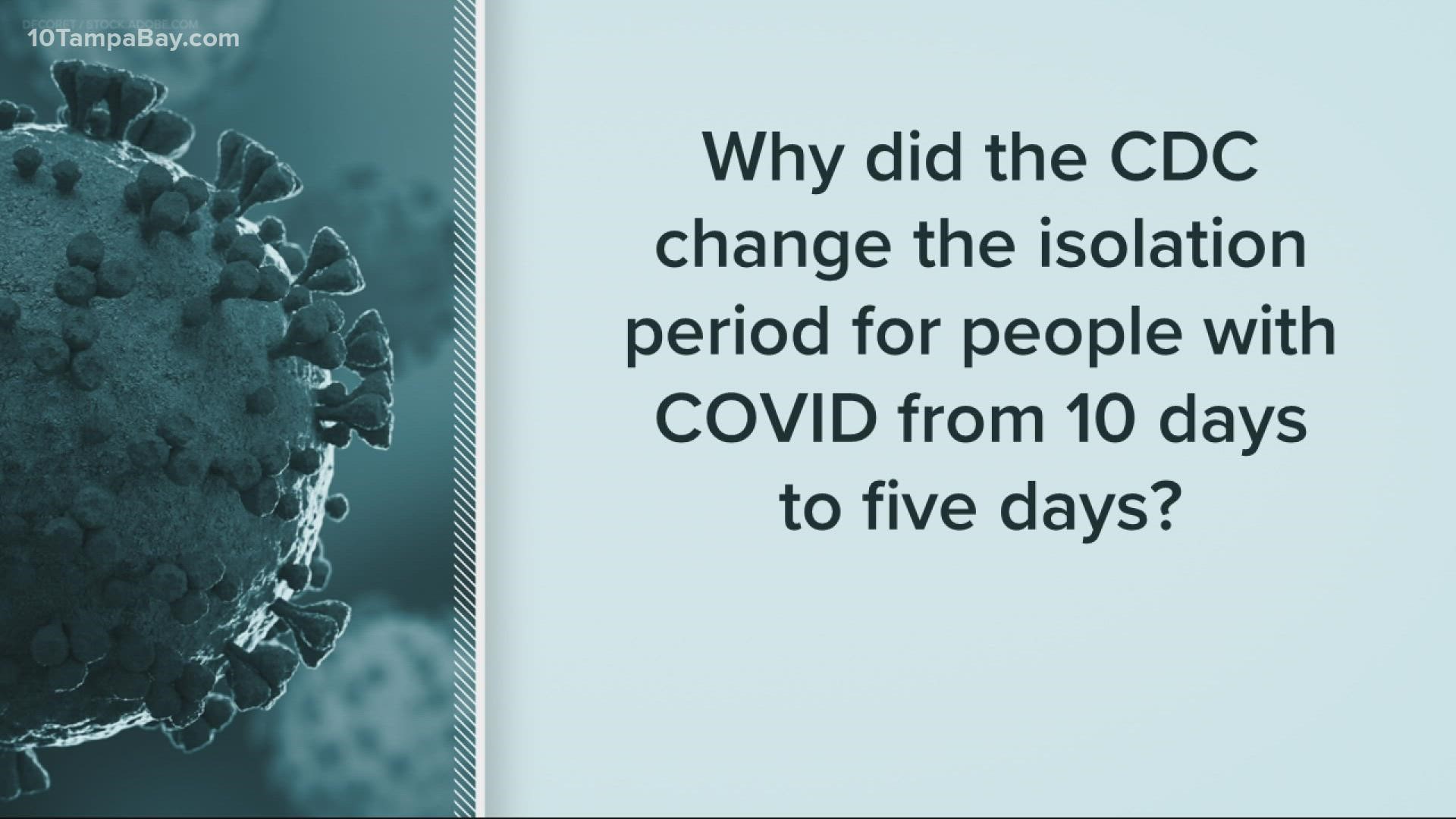ST. PETERSBURG, Fla. — Editor's note: The video above is from a previous story.
Florida is seeing an increase in new COVID-19 cases, due in large part to the fast-spreading and seemingly more contagious omicron variant.
According to the Florida Department of Health's latest report, 125,201 new COVID-19 cases were reported last week. That's up more than 95,000 from the previous week's reported new cases of 29,519.
In turn, omicron is impacting many things, including cancellations of sports games, entertainment and even your holiday flights.
As health experts continue to gather data on this new variant, many people are questioning what's different about omicron and if there are different symptoms.
Dr. Payal Kohli, sister-station KUSA's health expert, says the symptoms of omicron may be different than those of the original virus strain.
"In particular, there is less cough, high fever and loss of taste or smell," she told 9NEWS.
Kohli adds that omicron symptoms may be milder than the original strain.
The most prominent of those symptoms are the following:
- Headache
- Back pain
- Nasal congestion
- Sneezing
- Scratchy throat
The CDC's current list of COVID-19 symptoms includes the following:
- Fever or chills
- Cough
- Shortness of breath or difficulty breathing
- Fatigue
- Muscle or body aches
- Headache
- New loss of taste or smell
- Sore throat
- Congestion or runny nose
- Nausea or vomiting
- Diarrhea
Dr. Michael Teng, an associate dean for USF's College of Medicine, says vaccinated people who contract the omicron variant are likely to have more mild symptoms and be fine.
In contrast, people who are unvaccinated are more likely to be hospitalized with COVID-19.
Currently, about 71 percent of Floridians are vaccinated against COVID-19.
And, while the omicron variant is more contagious, it does not appear to be more deadly than delta or the original strain. Additionally, there has not been a significant spike in reported deaths nor in hospitalizations associated with omicron.
"The early data seems to show omicron is no more severe than delta and it may be less than delta," Teng explained.
Teng said it's still important to get vaccinated and stay cautious because COVID-19 is still in our communities.
"The virus is still trying to figure out how to get around. It’s not evolving, it’s still adapting," he added.

